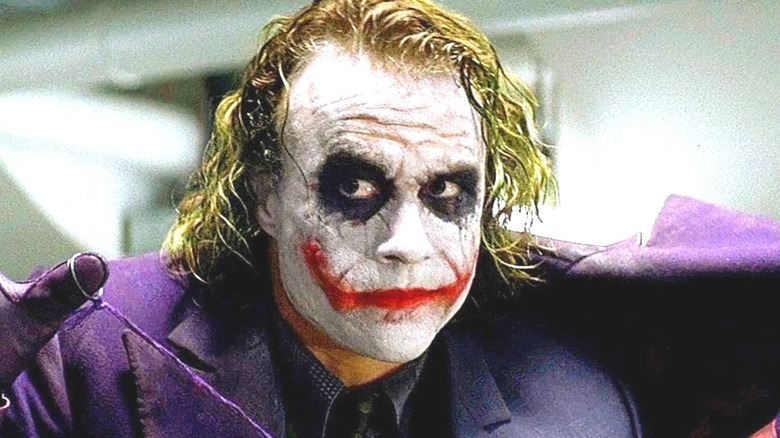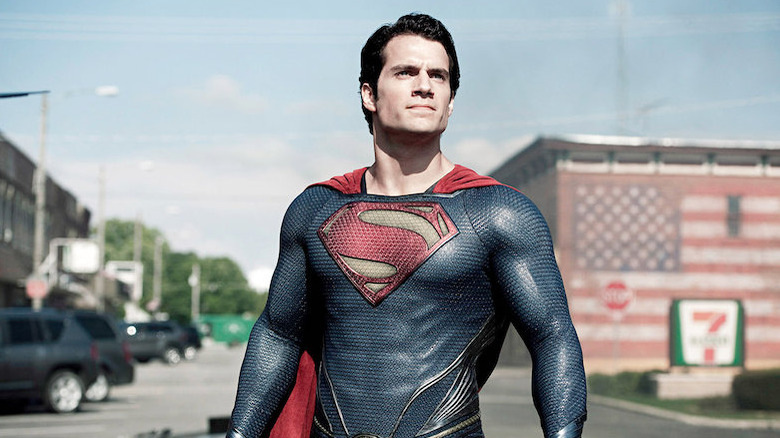This Is Why The Dark Knight Trilogy Didn't Launch The DCEU
Christopher Nolan's "Dark Knight" trilogy undeniably changed the landscape of what could be done with the superhero genre. The franchise came to a close in 2012's "The Dark Knight Rises," pitting Christian Bale's Caped Crusader against Tom Hardy's Bane. The grounded, real-world approach to the "Batman" mythology was something Christopher Nolan and writer David S. Goyer carried with them when working on "Man of Steel" with Warner Bros. and director Zack Snyder. The new "Superman" movie arrived in theaters just one year after the "Dark Knight" trilogy wrapped up Bruce Wayne's story, leading many to believe that it would take place in the same universe — although that wasn't the case.
It's understandable why fans assumed the "Dark Knight" trilogy could've launched the DC Extended Universe. "The Dark Knight Rises" left the door wide open for a future film starring Joseph Gordon-Levitt as John "Robin" Blake. Furthermore Nolan didn't tease or hint anything too restrictive towards the wider world that his version of Gotham City inhabited, and it would've been very easy to use it as the DCEU's springboard.
However, as screenwriter David S. Goyer recently revealed, it was never the director's intention to kick off the DCEU for Warner Bros.
Christopher Nolan wanted his trilogy to be separate
Although Christopher Nolan was one of the key producers who had a hand in initiating the DC Extended Universe with 2013's "Man of Steel," he apparently had no interest in tying it into his "Dark Knight" trilogy. David S. Goyer recently opened up about his prolific career in an interview with The Hollywood Reporter, including his time working with Christopher Nolan on the groundbreaking Batman movies, as well as discussing his involvement with the birth of the DCEU. The writer explained that Nolan wanted those films to be isolated from future projects, saying, "Chris always wanted to keep the Dark Knight films as a separate entity."
He also added that Warner Bros. had other ideas, "[the studio] kept wanting, understandably, to pull him into a whole DC expanded universe." It makes sense, thanks to the critical and commercial success of the whole trilogy, and clearly audiences resonated with the Nolan/Goyer vision of what superheroes could do on the big screen. Goyer went on to add, "Chris obviously was a producer on Man of Steel, and it's tempting to think they were linked," before definitively saying "but they really weren't. I mean, I'm sure one could retroactively do it."
This meant Warner Bros. and Zack Snyder could push in new directions without the confines of what had come before, with Ben Affleck later signing on for "Batman v Superman: Dawn of Justice" as an older, grizzled version of Bruce Wayne. The rest is history, but it's definitely interesting to think how the DCEU might've looked if the "Dark Knight" trilogy had become canon.

